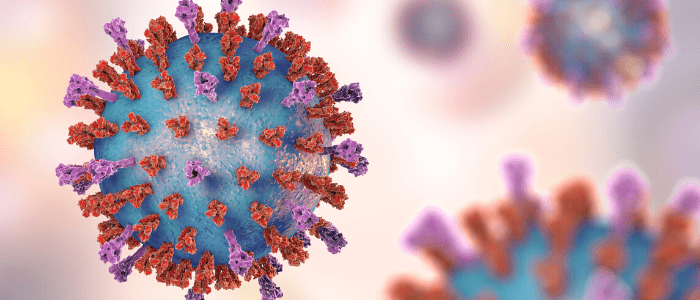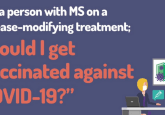COVID-19: are exposed individuals at a heightened risk of neuropsychiatric symptoms?

Scientists at the University of California San Diego School of Medicine (UCSD; CA, USA) have suggested that some individuals exposed to the novel coronavirus (COVID-19) could face a heightened risk of a range of neuropsychiatric symptoms such as encephalopathy, psychosis, depression and mood changes, amongst others.
Within their study – published in Brain, Behavior, and Immunity – the researchers discuss currently available evidence of COVID-19-related neuropsychiatric sequelae while drawing parallels with viral-related outcomes from past pandemics.
Become a member of Neuro Central to receive regular updates
“Past pandemics have demonstrated that diverse types of neuropsychiatric symptoms, such as encephalopathy, mood changes, psychosis, neuromuscular dysfunction or demyelinating processes, may accompany acute viral infection, or may follow infection by weeks, months, or longer in recovered patients,” the authors stated in their study.
They cautioned that: “Our article seeks to bring the medical community’s attention to the need for monitoring and investigations to mitigate such outcomes, not to cause panic among individuals whose lives are already greatly affected by this pandemic.”
According to the team, past respiratory viral pandemics have indicated a diverse range of neuropsychiatric symptoms arising. Reports from the 18th and 19th centuries have noted an increased incidence of insomnia, anxiety, depression, mania, suicidality and delirium.
More recent viral outbreaks (e.g., SARS-CoV-1 in 2003, H1N1 in 2009 and MERS-CoV in 2012) have seen subsequent reports of higher rates of narcolepsy, seizures, encephalitis, Guillain–Barre syndrome and other neuromuscular and demyelinating conditions.
“Reports are already surfacing of acute CNS-associated symptoms in individuals affected by COVID-19,” commented Hong, including greater stroke incidence in severely infected patients in Wuhan, China, along with delirium and loss of smell and taste senses.
A survey conducted in patients treated for COVID-19 from UCSD described the first findings strongly associating sensory loss with the novel coronavirus. According to the authors, the loss was temporary, and both smell and taste returned within 2–4 weeks of infection.
Although the neuropsychiatric consequences of COVID-19 are not yet known, the researchers have determined that it will likely be significant and last for years. They mentioned that emerging evidence suggests the biomedical community should begin monitoring for symptoms of neuropsychiatric conditions and the neuroimmune status of individuals exposed to SARS-CoV-2.
“We will need to do this at different points in their lives, for years to come, to fully appreciate this pandemic’s effects on neuropsychiatric outcomes for different age groups, and how to better prepare for pandemics to come,” concluded Hong.
Sources: Troyer EA, Kohn JN, Hong S. Are we facing a crashing wave of neuropsychiatric sequelae of COVID-19? Neuropsychiatric symptoms and potential immunologic mechanisms. Brain Behav. Immun.doi:10.1016/j.bbi.2020.04.027 (2020) (Epub ahead of print); https://ucsdnews.ucsd.edu/pressrelease/in-wake-of-covid-19-pandemic-a-crashing-wave-of-neuropsychiatric-problems
You might also like:

